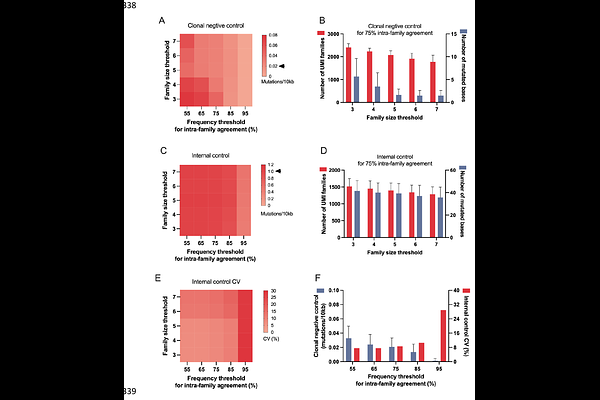Unique molecular identifier-based single strand mitochondrial DNA sequencing for rare substitution mutations

Unique molecular identifier-based single strand mitochondrial DNA sequencing for rare substitution mutations
Li, Z. E. S.; Dunn, R.; Caloren, L. C.; Ziada, A. S.; Chapman, H.; Gadawska, I.; Cote, H. C. F.
AbstractThe study of mitochondrial genetics has long been limited to polymorphisms and high frequency mutations owing in part to technical and technological limitations in reliably detecting and quantifying rare somatic mutations. Over the past decade or so, the study of rare somatic mitochondrial DNA (mtDNA) variants has expanded and continues to garner increasing interest in a wide range of research fields. Here, we describe a unique molecular identifier (UMI)-based library preparation and Next Generation Sequencing (NGS) method for the identification and quantification of ultra-rare mutations in the mtDNA control region. Our method exploits degenerate primers to label individual mtDNA molecules. This is followed by several purification, quantification and amplification steps, to obtain high quality amplicons for sequencing on the Illumina MiSeq platform. This method enables the use of total genomic DNA extract as starting point for the assay, overcoming the need for organelle isolation and/or mtDNA enrichment, hence broadening the type of specimen that can be studied, while offering cost and time benefits. The assay described herein has been demonstrated to reliably measure somatic variants present at approximately 0.05% variant allele frequency in a variety of tissues, including fresh and frozen biobanked specimens. Using this protocol, library preparation of 300 specimens can be completed by a single individual with general nucleic acid handling experience in approximately 20 days. Given its flexibility and scalability, this method is particularly well suited for epidemiological studies using a large number of specimens.